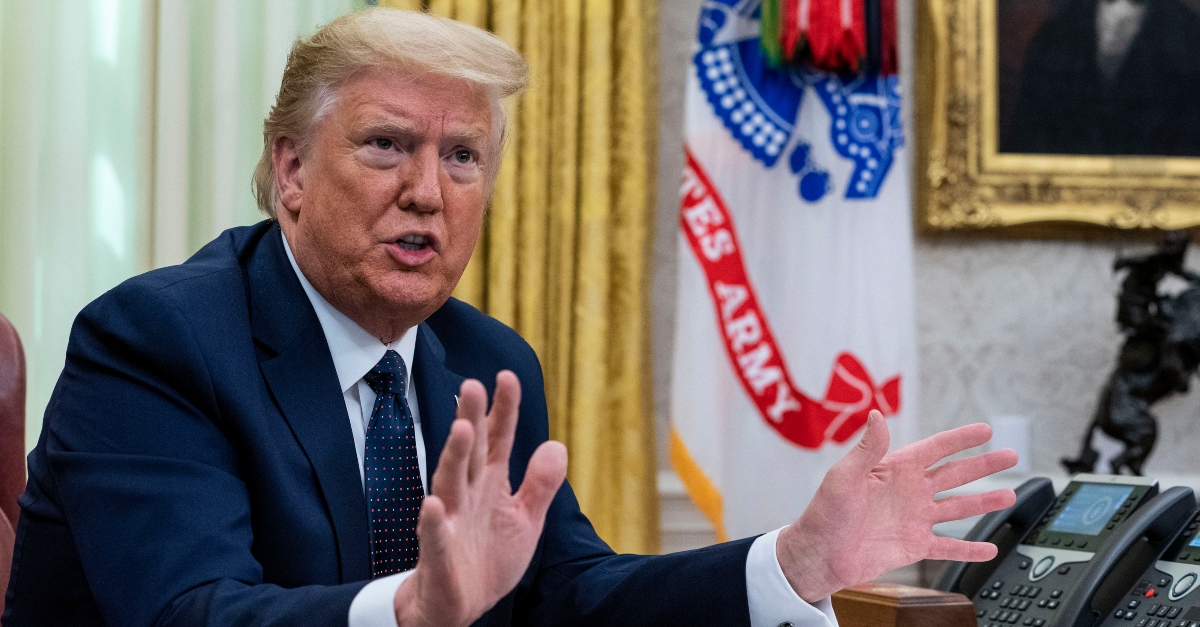
The U.S. Court of Appeals for the District of Columbia Circuit has ordered additional written arguments in President Donald Trump’s ongoing battle to prevent congressional investigators from obtaining his tax returns. The three-judge panel’s order on Tuesday directed the parties to complete supplemental briefs addressing whether the court’s decision should take into consideration a recent congressional memorandum detailing how the president’s financial documents are relevant to the House’s ongoing legislative agenda.
The question remains: can House Democrats enforce congressional subpoenas for the president’s financial records from his accounting firm Mazars USA, and two banks—Deutsche Bank and Capital One.
The case reached the U.S. Supreme Court this summer. The high court rejected Trump’s “absolute immunity” defense, but sent the case back to the lower courts, reasoning that they failed to fully account for the “significant separation of powers concerns implicated by congressional subpoenas for the President’s information.” The court also laid out a four-part test for evaluating the enforceability of demands for the president’s personal information.
The president and his lawyers have argued that there is no legitimate legislative purpose for Congress to seek Trump’s financial records other than to use them against him politically. Investigators on the House Financial Services and Intelligence Committees have maintained that they issued the subpoenas as part of money laundering and government ethics-related legislation that the panels had been contemplating.
Chair of the House Oversight panel Carolyn B. Maloney (D-NY) penned a memo to her colleagues last month summarizing the “investigations and potential legislative reforms” she said would be advanced by allowing the panel to enforce the subpoena against Mazars. Maloney also included arguments specifically addressing why the committee’s subpoena satisfied all of the requirements for enforcement set forth by the high court.
“[I]n the absence of a detailed understanding of this President’s financial holdings and the conflicts they raise, Congress has been unable to tailor its legislative approaches to detailed facts and evidence, which would ensure the legislation’s effectiveness and minimize the burden on the President and presidential candidates,” Maloney wrote in the memo. “This includes potential new measures that can be written only after obtaining and analyzing the detailed information sought in the subpoena to Mazars, such as legislation to address specific harms already caused by the President’s financial holdings and conflicts of interest.”
The D.C. Circuit’s order specifically directed the parties to address whether consideration of Maloney’s memo is consistent with the Federal Rules of Appellate Procedure. Additionally, the panel asked the parties to brief “what weight, if any” should be given to the memo and whether Maloney’s claims do in fact comport with the Supreme Court’s evaluating standard.
The supplemental reply briefs are due by Sept. 21 with another round of oral arguments scheduled for Oct. 20.
Read the order below from Circuit Judges David Tatel, Patricia Millet and Neomi Rao below:
DC Circuit Court Order by Law&Crime on Scribd
[image via Doug Mills-Pool/Getty Images]